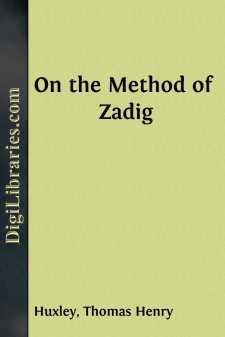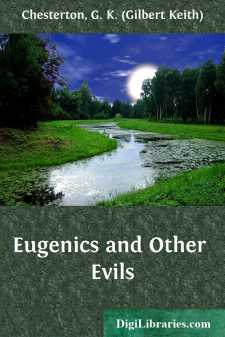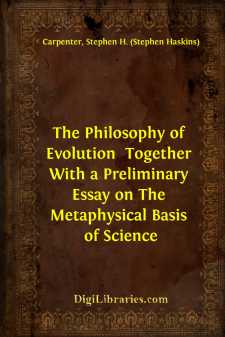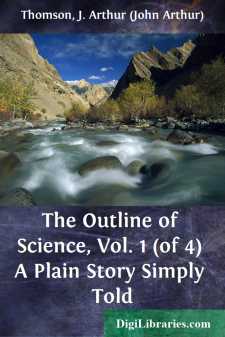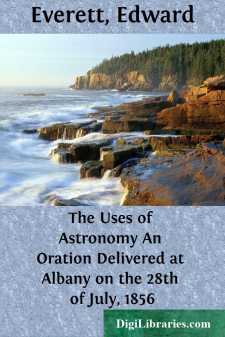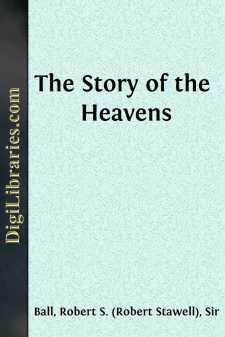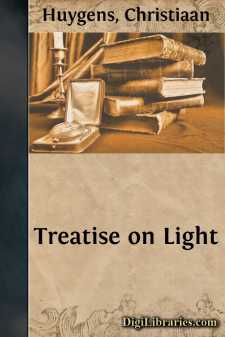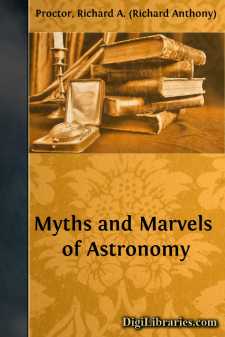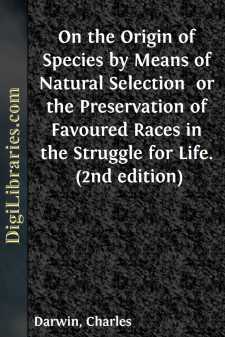Science
- Astronomy 18
- Biology 40
- Chemistry 13
- Electricity 1
- General 38
- History 6
- Light 1
- Paleontology 2
- Philosophy & Social Aspects 1
- Physics 3
- Relativity 2
- Study & Teaching 1
- Waves & Wave Mechanics 1
Science Books
Sort by:
It is an usual and a commendable practice to preface the discussion of the views of a philosophic thinker by some account of the man and of the circumstances which shaped his life and coloured his way of looking at things; but, though Zadig is cited in one of the most important chapters of Cuvier's greatest work, little is known about him, and that little might perhaps be better authenticated than...
more...
WHAT IS EUGENICS? The wisest thing in the world is to cry out before you are hurt. It is no good to cry out after you are hurt; especially after you are mortally hurt. People talk about the impatience of the populace; but sound historians know that most tyrannies have been possible because men moved too late. It is often essential to resist a tyranny before it exists. It is no answer to say, with a...
more...
All knowledge is essentially one. The object-matter upon which intellect exerts itself, does not affect the subjective act of knowing. Physics, when stripped of that which is merely contingent, becomes metaphysics. Physical science deals with object-matter, and discusses the signs by which nature communicates her message—that is, phenomena. Metaphysical science has to do with the subject-mind, and...
more...
Gallick Reports: Or, A Collection of Criminal Cases adjudg'd in the Courts of Judicature in France. In which is Comprized, An Account of Arnold du Tilh, an Impostor, who deceived a Man's Wife and Relations, and puzzled, for a long Time, the Parliament of France. Memoirs of the famous Madam de Brinvilliers, who poisoned her Father, and two Brothers, and attempted the Life of her Sister,...
more...
Our fabulist warns "those who in quarrels interpose" of the fate which is probably in store for them; and, in venturing to place myself between so powerful a controversialist as Mr. Gladstone and the eminent divine whom he assaults with such vigour in the last number of this Review, I am fully aware that I run great danger of verifying Gay's prediction. Moreover, it is quite possible that...
more...
by:
Edward Everett
TWO NEW INSTITUTIONS OF SCIENCE; THE SCENES WHICH ATTENDED THEIR CHRISTENING. In the month of August last, two events took place in the city of Albany, which have more than an ephemeral interest. They occurred in close connection with the proceedings of a Scientific Convention, and the memory of them deserves to be cherished as a recollection of the easy way in which Science may be popularized and be...
more...
CHAPTER I. THE ASTRONOMICAL OBSERVATORY. Early Astronomical Observations—The Observatory of Tycho Brahe—The Pupil of the Eye—Vision of Faint Objects—The Telescope—The Object-Glass—Advantages of Large Telescopes—The Equatorial—The Observatory—The Power of a Telescope—Reflecting Telescopes—Lord Rosse's Great Reflector at Parsonstown—How the mighty Telescope is...
more...
CHAPTER I ON RAYS PROPAGATED IN STRAIGHT LINES s happens in all the sciences in which Geometry is applied to matter, the demonstrations concerning Optics are founded on truths drawn from experience. Such are that the rays of light are propagated in straight lines; that the angles of reflexion and of incidence are equal; and that in refraction the ray is bent according to the law of sines, now so well...
more...
ASTROLOGY. Signs and planets, in aspects sextile, quartile, trine, conjoined, or opposite; houses of heaven, with their cusps, hours, and minutes; Almuten, Almochoden, Anahibazon, Catahibazon; a thousand terms of equal sound and significance.—Guy Mannering. ... Come and see! trust thine own eyes.A fearful sign stands in the house of life,An enemy: a fiend lurks close behindThe radiance of thy...
more...
by:
Charles Darwin
INTRODUCTION. When on board H.M.S. 'Beagle,' as naturalist, I was much struck with certain facts in the distribution of the inhabitants of South America, and in the geological relations of the present to the past inhabitants of that continent. These facts seemed to me to throw some light on the origin of species—that mystery of mysteries, as it has been called by one of our greatest...
more...


